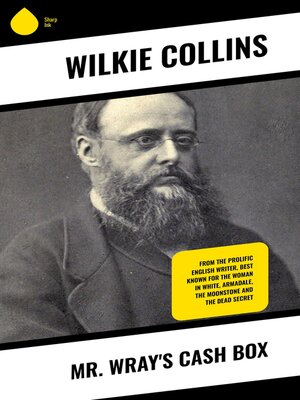Mr Wray's Cash Box
ebook ∣ From the prolific English writer, best known for The Woman in White, Armadale, The Moonstone and The Dead Secret
By Wilkie Collins

Sign up to save your library
With an OverDrive account, you can save your favorite libraries for at-a-glance information about availability. Find out more about OverDrive accounts.
Find this title in Libby, the library reading app by OverDrive.



Search for a digital library with this title
Title found at these libraries:
| Library Name | Distance |
|---|---|
| Loading... |
In "Mr Wray's Cash Box," Wilkie Collins constructs a captivating narrative that intertwines elements of mystery and social commentary, reflecting the complexities of Victorian society. The story revolves around the eponymous Mr. Wray and his enigmatic cash box, serving as a catalyst for the unfolding drama. Collins employs his signature style, characterized by vivid characterization and intricate plot development, as he explores themes of morality, deception, and the quest for identity. The novel, written in 1862, showcases Collins at the height of his literary prowess, blending sensationalism with a critical examination of contemporary issues. Wilkie Collins, a contemporary and close friend of Charles Dickens, was among the pioneers of the mystery genre. His firsthand experiences with legal and financial matters informed the plot of "Mr Wray's Cash Box," allowing him to delve deeply into the societal implications of trust and betrayal. Collins's personal struggles with illness and societal expectations also permeate his work, adding layers of depth to his characters and narratives. His innovative storytelling and focus on the psychological dimensions of his characters strongly influenced subsequent detective fiction. For readers interested in the origins of the modern mystery genre and explorations of moral ambiguity, "Mr Wray's Cash Box" is a compelling read. Collins not only provides an entertaining plot but also invites the audience to reflect on the ethical dilemmas faced by his characters. This novel is a significant contribution to both Collins's oeuvre and the broader tapestry of Victorian literature.







